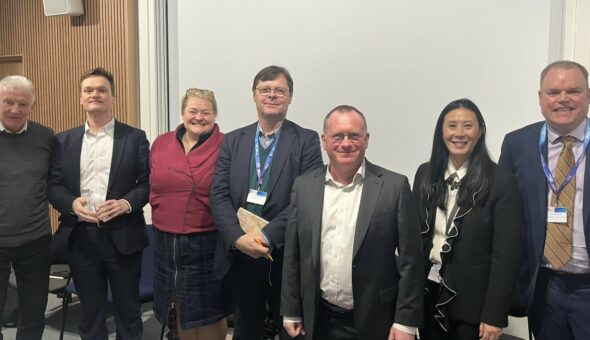Hussein Darwish is in his second year of his PhD in Management and is a member of our Future of Work research centre. He shares his insights on how hybrid working is changing the way we think about our roles.
What drove you to choose Bath for your PhD?
I looked at the ranking first, because that matters a lot – especially because I'm planning for an academic career – and the School of Management was among the top ten in the UK.
Then I started to look at faculty members and the kind of research they're doing, because I already had an idea of what I wanted to do. When I reached out to Bath academics and had initial chats, they were very friendly and supportive – more so than other universities.
Another driver was the research centres here, which I think are very important to highlight your research, make it more visible and interact with others.
What is your research topic and how did you decide on it?
I'm exploring employee behaviours in a hybrid work context. You have behaviours that are part of your job description and those that are extra – the ones that you demonstrate as out of your citizenship spirit to the organisation. These extra-role behaviours are what I'm looking at.
Basically, how have people become attached to the place where they work? Because now you could work from a coffee shop, you could work from home, you could come to the office. During an average week you work from multiple places, so how do these shifting dynamics affect your extra-role behaviours?
What initially sparked your interest in the topic?
Before applying for a PhD, I spent two years working in a hybrid fashion, so I started to become more aware of how this could affect your mentality and the way you deal with things. For example, you have more flexibility at home.
So it was personal experience, which I then built upon with the guidance of my supervisors, Dr Stefanie Gustafsson and Dr Zeynep Yalabik.
The Covid-19 pandemic really has changed many aspects of work, such as flexibility at home. You can have your own breaks at home; you could work at night and compensate for the hours lost during the day; you get rid of commuting, which saves you time and effort. It all makes a big difference.
What are your research methods and what have been your findings so far?
I'll be doing qualitative research because I need to gain in-depth experience of hybrid workers’ experience within these dynamics. I’ll be doing this through interviews.
I'm looking at consultants specifically, because extra-role behaviours are very important for their careers. Also, because they are knowledge workers, most of their work is based in teams and in a very collaborative environment. This can include hybrid teams, with some of them at their office and some in other workplaces.
I've done two interviews with School of Management staff as a pilot, and some really interesting insights came out. One example was an employee who told me that he's required by contract to come one or two days a week to the office. But if he does more than two days here at the office, he feels like he's doing something extra, because your employer, generally, would appreciate you being here and seeing you.
What are the implications for your research in a real-world setting?
It could mean that managers could become more aware of how they could encourage these extra-role behaviours in a hybrid setting. It's very established in the literature that if you do extra for your job, it’s very beneficial not only to your colleagues but also to your organisation. Good relationships between colleagues, for example, have implications for retention.
So because these kinds of behaviours are very important, if you know how they take place and how they are shaped by the current work environment – which is likely to be the future one, as well – you know how to drive them.
What advice would you offer to others studying or considering a PhD?
I would really advise people not to rush it. I was fortunate enough to try both research job in an academic setting and an industry job in HR; I think work experience is very important.
A PhD is not an easy journey, so you have to think it through and try industry before. Not only can you explore your interests through that, but you can also perhaps come up with a very relevant, practically driven research topic.
Respond



